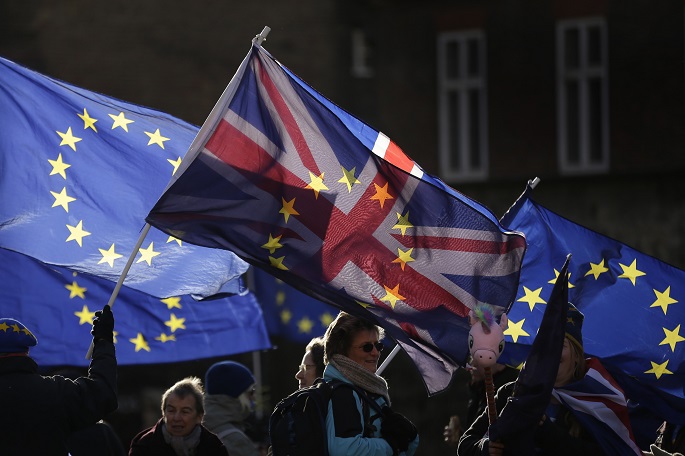Falling borrowing gives Britain more leeway on Brexit
Published : 22 Nov 2018, 01:17
Updated : 22 Nov 2018, 03:15
British government's borrowing this year has fallen and is less than planned for, according to data on Wednesday, giving Chancellor of the Exchequer Philip Hammond more leeway in his spending to deal with the uncertainties that Brexit might throw up.
While October saw an increase in monthly borrowing over the same period last year, revisions made about borrowing amounts from previous months during this financial year (from April onwards) reduced this year's borrowing total, according to Office of National Statistics (ONS) figures.
Public sector net borrowing (PSNB) in the first half of 2018-19 was revised down 2 billion pounds (2.56 billion U.S. dollars) to 17.9 billion pounds, and any reduction in this year's borrowing gives Chancellor Hammond more leeway to deal with any difficulties caused by the Brexit process, for example the disruption a no-deal Brexit might cause.
"October's surprise jump in public borrowing is not a material setback for the Chancellor, who will stick to his new Budget plans for modest fiscal stimulus next year," said Samuel Tombs, chief UK economist at Pantheon Macroeconomics, a London-based economics research consultancy.
Chancellor Hammond unveiled his latest Budget at the end of October, which contained fiscal giveaways up to 2022, headlined by an annual 20 billion pounds (25.55 billion dollars) of extra funding for the National Health Service (NHS).
The chancellor had the money to do this because of improved government receipts, identified by the Office of Budget Responsibility (OBR), the independent government economics data body, in the official economic data.
There had been worries that tax receipts would suffer as Brexit approached as the uncertainty of the Brexit outcome weighed on consumer spending and business activity, but this is not evident in Wednesday's figures.
The OBR now forecasts that annual government borrowing will be nearly a third less by the end of the fiscal year than it forecast at the start of the fiscal year.
"Public borrowing probably would rise in the unlikely event of a no-deal Brexit. But even then, the Chancellor still would press on with his tax cuts," said Tombs.


